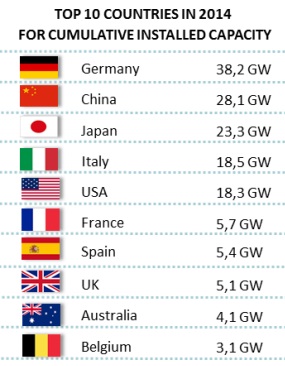By Juan Cole | (Informed Comment) | –
The Hawaii legislature has just passed a bill by an overwhelming margin that sets a goal of 100% renewable energy in the state by 2045. The new law requires that the state get a third of its electricity from renewables by 2020, only five years from now. Electricity in Hawaii is expensive, about 34 cents a kilowatt hour for residences, since unlike most states it depends on petroleum as the fuel for its plants, and that has to be imported across long distances. The US average cost for residential electricity is 12 cents a kilowatt hour. New solar installations can provide it as low as 6 cents a kilowatt hour, and new geothermal plants are slightly cheaper (Hawaii has a *lot* of potential geothermal power but there is substantial public resistance, and solar may be the better play). So the legislature’s plan is the only thing that makes sense, and if anything its timeline is not nearly ambitious enough. Even a developing country like Morocco plans for 42% renewables by 2020, and Scotland may well be 100% by then. Costa Rica already is.
Solar energy is playing a role in post-disaster relief works in Nepal. Small solar kits power water purification and can charge phones and provide lighting in villages, where power lines are now often down because of the massive earthquake. donate here.
China put in 5 gigawatts of new solar plants in the first three months of 2015 alone. In all of 2014, the USA did not install that much new solar, and 2014 was a remarkably good year for solar power in the US. China is near to outstripping Germany for title of country with the most solar energy. It will likely have 45 gigwatts of solar generation capacity by the end of 2015, 10 gigs more than it had planned for.
Pakistan, habitually plagued with a lack of electricity and repeated brown-outs, has opened its first solar power plant. The newly opened plant generates 100 megawatts, but that will be increased 10-fold to 1 gigawatt over the next year. It only cost $190 mn. to build, took a year, and was installed by by China’s Tebian Electric Apparatus Stock Co Ltd (TBEA). The project is part of a $46 bn. development scheme proposed by the Chinese government for Pakistan.
Dubai has earmarked $3 billion to raise the generating capacity of the Shaikh Mohammad Bin Rashid Al Maktoum Solar Park from 1 gigawatt to 3 gigawatts. The United Arab Emirates also announced that it will install 100 MW of solar in the north.




 © 2025 All Rights Reserved
© 2025 All Rights Reserved